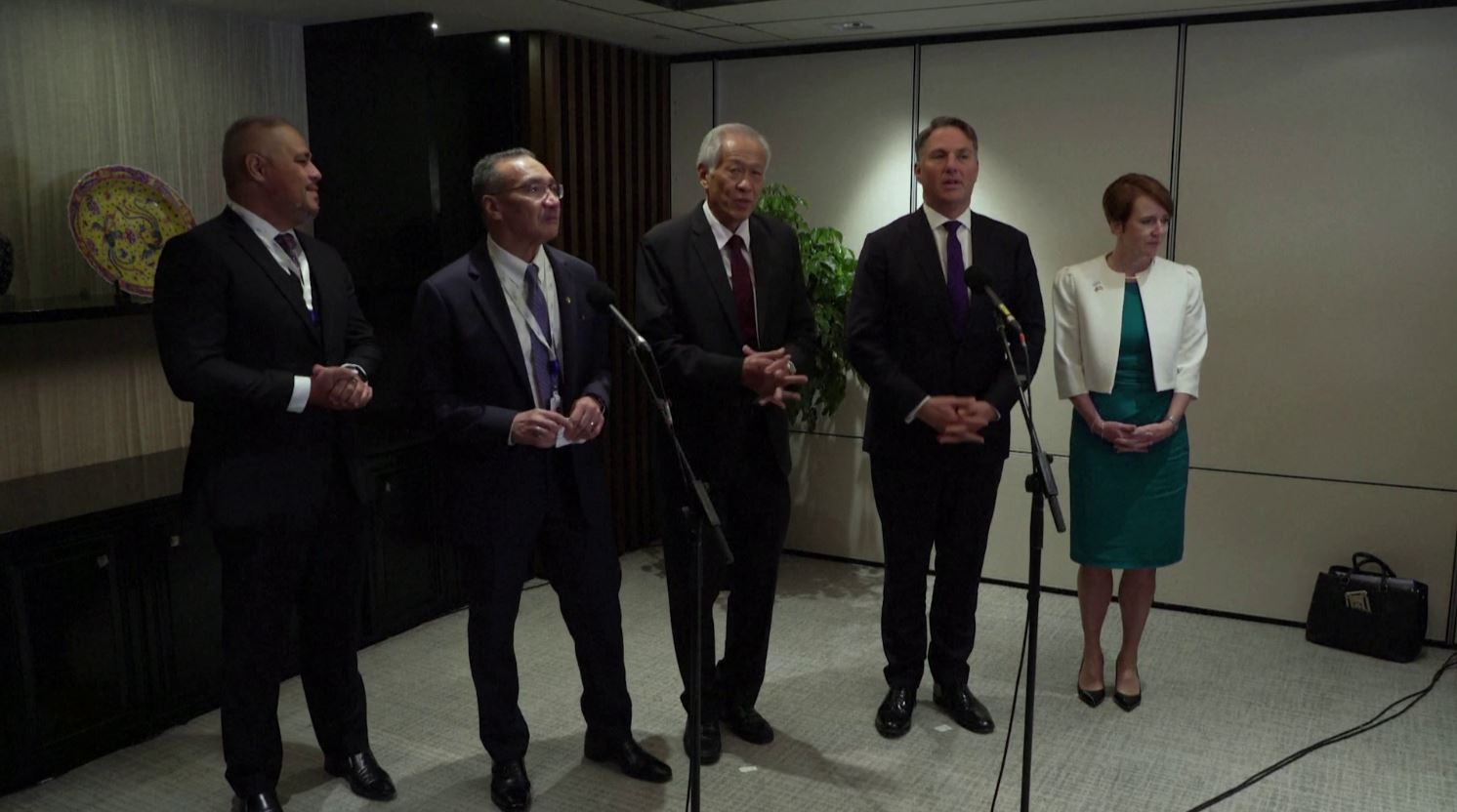INTERNATIONAL: The so-called military version of the Indo-Pacific Strategy being vigorously promoted by the United States at the 19th Shangri-La Dialogue is to intervene in the development of the Asia-Pacific region under the guise of security concerns, which will undermine the prosperity and stability of the countries in the region, said Chinese military experts on Saturday.
During the summit, U.S. Secretary of Defense Lloyd Austin delivered a speech titled "Next Steps for the United States' Indo-Pacific Strategy" and made unfounded accusations against China on Saturday.
The experts said the countries in the region need to be vigilant over U.S. repeated remarks on changing political circumstances around China.
The so-called Indo-Pacific Strategy proposed by the U.S. is calling for an anti-China alliance to contain China's development.
The Asia-Pacific region has made constructive efforts in maintaining peace and stability and promoting development and prosperity over the past few decades. But the regional development will be jeopardized if the political circumstances around China are undermined, the experts noted.
"In fact, the countries in the region have been rising in the past few decades. They have all benefited from the development of the Asia-Pacific region and the rise of China. If the leading role of circumstances is changed from development and peace to military security and differences and confrontation, it will bring very big problems to the regional peace and stability," said Zhao Xiaozhuo, a researcher at the Academy of Military Sciences of China's People's Liberation Army (PLA).
"The essence of the so-called Indo-Pacific Strategy is to strengthen the containment of China by using China as a major strategic competitor and building an alliance system in the Indo-Pacific region," said Cao Yanzhong, another researcher with the Academy of Military Sciences.
There is but one China in the world, Taiwan is a part of China, and the government of the People's Republic of China is the sole legal government representing the whole of China, the experts said, adding that these are reflected in the three China-U.S. joint communiques.
But the U.S. is constantly provoking China over the Taiwan question, touching the country's bottom line and interfering in its internal affairs, which has lost its credibility as a major power inconsistent with its words and deeds, according to the experts.
"The U.S. is playing small tricks to near China's bottom line. In fact, as I said, it is trying to keep a certain degree of hot. But in this process, it has indeed lost its credibility as a major power," Zhao said.
The experts said the U.S. is constantly provoking confrontation and division among the countries in the Asia-Pacific region, all because of its national strategy, which has been seen through by the countries in the region.
"In fact, the U.S. cannot realize the purpose of its Indo-Pacific Strategy, and this has also been seen through by the people and governments of the countries in the Asia-Pacific region. Such an approach that is not conducive to the regional peace will be opposed by the countries and people in the region," Cao said.
The three-day summit was held in Singapore from Friday to Sunday after a two-year suspension due to the COVID-19 pandemic, focusing mainly on security in the Asia-Pacific region and viable solutions.






















